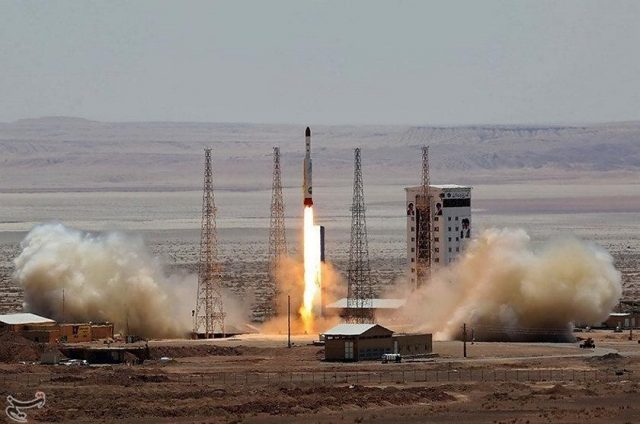
UNITED NATIONS — The United States, Britain, France and Germany warned the United Nations on Wednesday that Iran had taken “a threatening and provocative step” by testing a rocket capable of delivering satellites into orbit and asked the U.N. chief to investigate.
In a report submitted to the U.N. Security Council’s Iran sanctions committee and U.N. Secretary-General Antonio Guterres, the four countries described the July 27 launch as inconsistent with a 2015 U.N. Security Council resolution.
They asked Guterres to report “fully and thoroughly on Iran’s ballistic missile and space launch activity” to the 15-member Security Council.
Most U.N. sanctions were lifted 18 months ago under a deal Iran made with key world powers to curb its nuclear program. But Iran is still subject to an arms embargo and other restrictions, which are not technically part of the nuclear agreement.
Guterres reports every six months to the Security Council on the implementation of the remaining sanctions and restrictions.
“The technologies necessary for the conception, the fabrication and the launch of space launch vehicles are closely related to those of ballistic missiles, in particular to those of an intercontinental ballistic missile,” the four powers wrote in their report, seen by Reuters.
“This launch therefore represents a threatening and provocative step by Iran,” they wrote. “Iran’s longstanding program to develop ballistic missiles continues to be inconsistent with (the U.N. resolution) and has a destabilizing effect in the region.”
U.S. Ambassador to the United Nations Nikki Haley submitted the report on behalf of the four countries.
Iran’s foreign minister, Mohammad Javad Zarif, denied on Friday that Tehran had missiles designed to carry nuclear warheads.
The four countries also planned to raise the issue of the launch during the next Security Council meeting on the implementation of the resolution so the Council can discuss possible responses. It was not clear when that meeting would be held.
However any Security Council action would likely be difficult. Under the U.N. resolution, Iran is “called upon” to refrain from work on ballistic missiles designed to deliver nuclear weapons for up to eight years. Some states argue that the language of the resolution does not make it obligatory.
“We call on Iran to immediately cease all activities related to ballistic missiles designed to be capable of delivering nuclear weapons, including launches using such ballistic missile technology,” the United States, Germany, Britain and France wrote.
The United States imposed sanctions on six subsidiaries of a company key to Iran’s ballistic missile program, a day after Iran launched the rocket last week.








